A Guide to Choosing a Sports and Wildlife Bridge Camera From $100
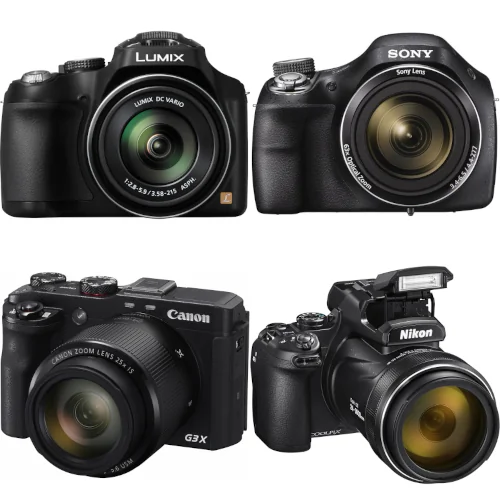
Sports and wildlife photography requires expensive and often heavy telephoto lenses. The cheapest interchangeable lens camera kits can still be close to $1,000.
Bridge cameras offer an inexpensive entry point into a super telephoto field of view. Another huge benefit is that they are relatively light. This makes them the ideal choice for taking on nature hikes or to children’s sporting events.
The reach on many of these cameras is quite impressive. They can zoom in on very small objects, such as birds.
This is because the sensors are smaller than what is in interchangeable lens cameras. The biggest downside is going to be that they are not great in low light conditions. Those would include dawn, dusk, outdoor sports at night, and indoor sports. Though, to be fair, those conditions are difficult for all cameras.
What is a Bridge Camera? (Fixed Lens)
A bridge camera has a fixed lens and advanced features reserved for high end cameras. Superzooms have lenses that extend into the super telephoto range.
Advantages:
- Versatile Zoom Range: The following bridge cameras all have a long zoom lens. This allows users to quickly capture both wide-angle shots and telephoto images.
- All-in-One Design: They are convenient for sports, wildlife, travel, or casual photography.
- Manual Controls: Bridge cameras offer manual settings and physical controls.
- Cost-Effective: Cheaper than what a comparable lens for a DSLR or mirrorless camera would cost.
- Lightweight: They are often lighter than DSLRs with equivalent zoom lenses.
Disadvantages:
- Sensor Size: Bridge cameras have small sensors. This results in worse low light performance.
- Fixed Lens: The lens cannot be changed, which can be limiting.
- Performance Limitations: More expensive cameras have better performance.
- Limited Bokeh: Due to the smaller sensor and lens characteristics, achieving a shallow depth of field or “bokeh” effect can be more challenging.
Affiliate Links
Outside the Shot is a participant in the Amazon Services LLC Associates Program, an affiliate advertising program designed to provide a means for sites to earn advertising fees by advertising and linking to Amazon.com.
As an eBay Partner, I may be compensated if you make a purchase. I also participate in affiliate advertising programs with KEH and Adorama. More can be found on the Affiliate Discolsure page.
I have purchased gear from all of these companies and I expect them all to receive repeat business from me.
SD Memory Card Requirements
All cameras can use SDXC memory cards. Max size of 2TB. Worth getting a UHS-I card, because there is basically no price difference and it will future proof the card. Make sure to have the latest firmware.
AmazonCameras Under $100 (Auctions)
The only way to get a camera that meets the basic criteria for wildlife or sports for under $100 is to win an auction on eBay. The key factor is going to be having the patience required to wait for cameras to come up for auction.
Any of the cameras under $200 are the models to watch. Winning an auction is also a great way to save some money on any of the more expensive models listed below.
Cameras Under $200
| Camera | Zoom | Year | Weight | Megapixels | Battery | Battery Charger |
|---|---|---|---|---|---|---|
| Nikon B600 | 24-1440mm | 2019 | 500g | 16 MP | EN-EL12 | EH-73P |
| Panasonic FZ70 | 20-1200mm | 2013 | 606g | 16 MP | DMW-BMB9 | DE-A84 |
| Sony DSC-H400 | 25-1550mm | 2014 | 655g | 20 MP | NP-BX1 | BC-TRX |
| Nikon P600 | 24-1440mm | 2014 | 565g | 16 MP | EN-EL23 | MH-67P |
Nikon Coolpix P600
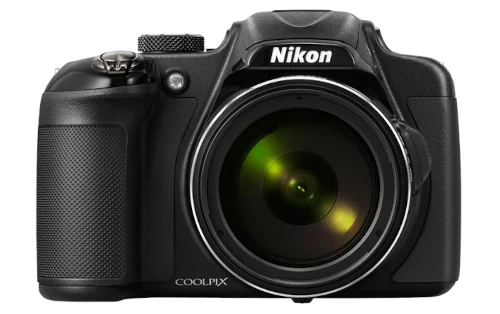
The P600 has the most quality of life features that will make using the camera enjoyable. A thumb wheel provides easy access to aperture priority, shutter priority, and manual mode controls.
The viewfinder means the camera is usable in bright sunlight. The flip screen makes shooting at high and low angles possible.
This is the best choice among the cameras available under $200.
See current price and more information on:
Panasonic Lumix FZ70
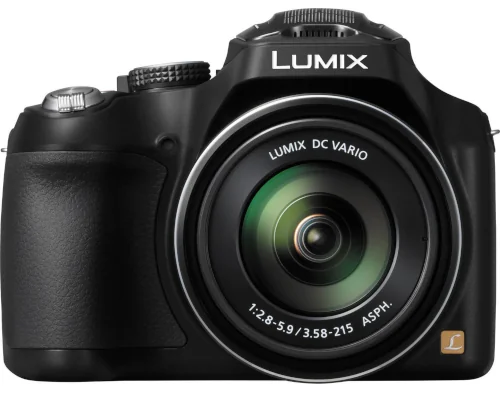
Also known as the Panasonic Lumix DMC-FZ72. Likely the least expensive camera on the list and the most likley to be found under $100.
There are enough physical controls that are good enough for a beginner learning photography. The lack of a flip screen is going to be limiting.
See current price and more information on:
Sony Cybershot DSC-H400
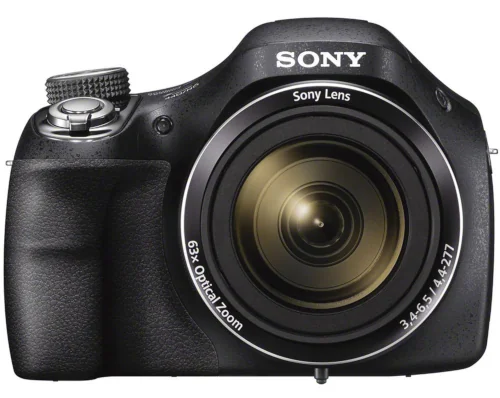
Has a viewfinder, but no flip screen or control dial. These lack of features will likely feel limiting as you learn more about photography.
Having to menu dive to change common settings that other cameras have physical buttons for will get annoying.
See current price and more information on:
Sony Cybershot DSC-H400 Manual
Nikon Coolpix B600
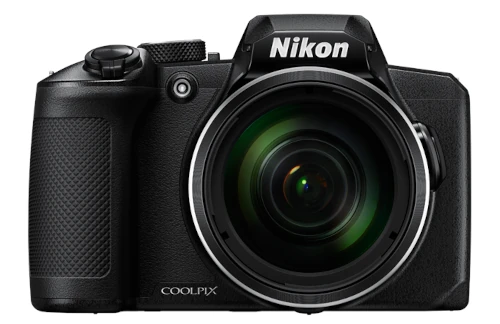
This is a stripped down budget camera. The lack of viewfinder will be an issue in bright sunlight as the screen may be difficult to see. The screen is also not a flip screen, which limits the angles that you can shoot from.
There are fewer physical controls, which means menu diving. This slows down changing settings as you will have to rely on the screen. This will be annoying to do in bright sunlight. The lack of a control dial shows that this camera was designed to primarily be used in auto mode.
See current price and more information on:
Cameras Under $300
| Camera | Zoom | Year | Weight | Megapixels | Battery | Battery Charger |
|---|---|---|---|---|---|---|
| Nikon P610 | 24-1440mm | 2015 | 565g | 16 MP | EN-EL23 | MH-67P |
| Canon SX60 HS | 21-1365mm | 2014 | 650g | 16 MP | NB-10L | CB-2LC |
| Panasonic FZ80 | 20-1200mm | 2017 | 616g | 18 MP | DMW-BMB9 | DE-A84 |
Nikon Coolpix P610
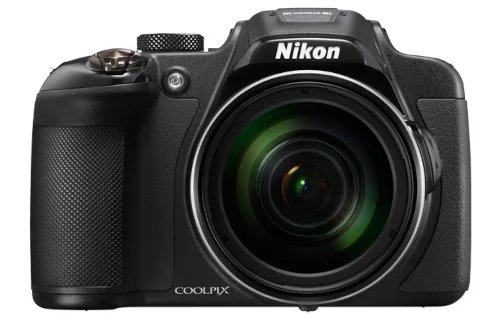
See current price and more information on:
Canon PowerShot SX60 HS
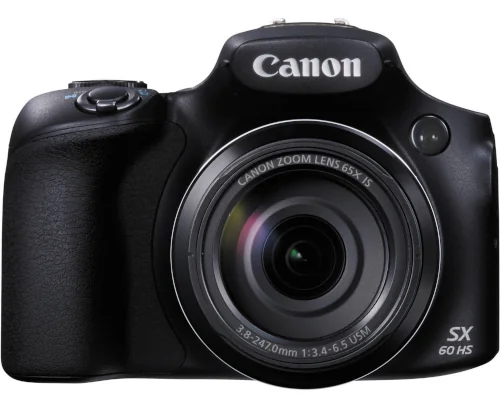
See current price and more information on:
Canon PowerShot SX60 HS Manual
Panasonic Lumix FZ80
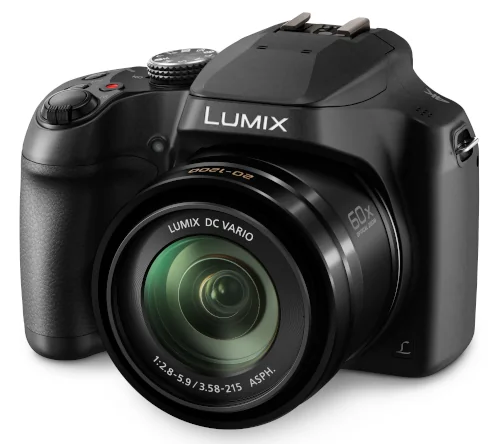
The lack of a flip screen is a big drawback of this camera. However, the 20mm equivalent wide angle view is attractive for travel or architecture photography.
See current price and more information on:
Cameras Under $400
| Camera | Zoom | Year | Weight | Megapixels | Battery | Battery Charger |
|---|---|---|---|---|---|---|
| Nikon B700 | 24-1440mm | 2016 | 570g | 20 MP | EN-EL23 | MH-67P |
| Nikon P900 | 24-2000mm | 2015 | 899g | 16 MP | EN-EL23 | MH-67P |
| Canon G3 X | 24-600mm | 2015 | 733g | 20 MP | NB-10L | CB-2LC |
Nikon Coolpix B700
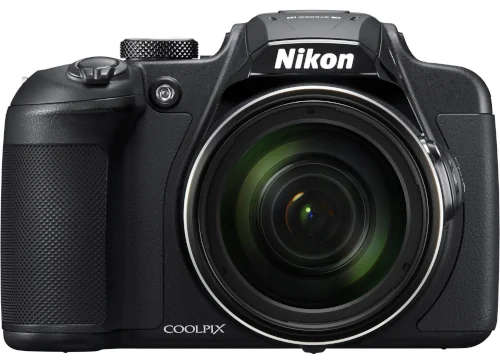
A large improvement over the Nikon B600. The inclusion of a flip screen and more physical buttons makes this camera much more usable. The size and weight will also be good for most people.
See current price and more information on:
Nikon P900
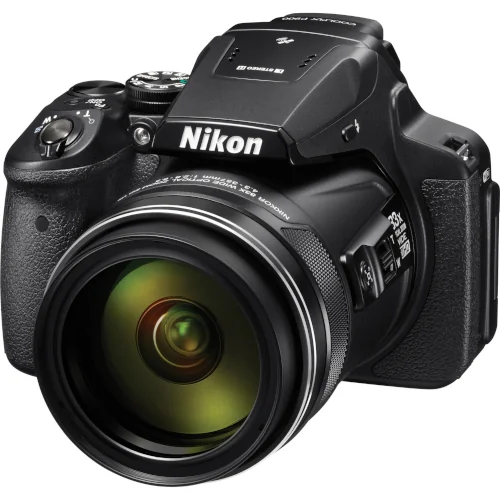
The telephoto zoom of this camera is impressive. That does come at a noticeable increase in size and weight compared to the cameras listed above. The camera also lack RAW support, which is a major drawback for post processing and image editing.
See current price and more information on:
Canon PowerShot G3 X
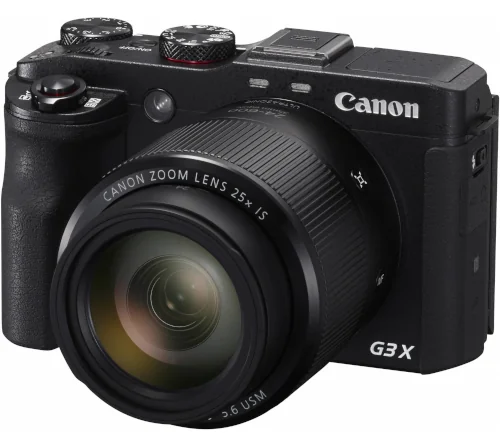
This is the first camera to make the list that has a larger, 1.0-type sensor. This will help the camera in low light shooting and to achieve a shallower depth of field. However, if either of those are overly important to you, a Micro Four Thirds camera might be a better choice.
See current price and more information on:
Cameras Under $500
| Camera | Zoom | Year | Weight | Megapixels | Battery | Battery Charger |
|---|---|---|---|---|---|---|
| Canon SX70 HS | 21-1365mm | 2017 | 608g | 20 MP | LP-E12 | LC-E12 |
Canon PowerShot SX70 HS
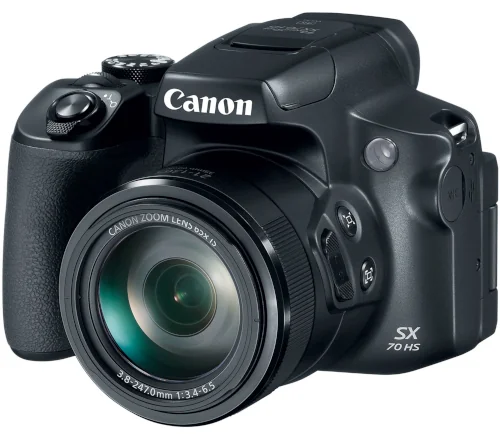
See current price and more information on:
Canon PowerShot SX70 HS Manual
Cameras Under $750
| Camera | Zoom | Year | Weight | Megapixels | Battery | Battery Charger |
|---|---|---|---|---|---|---|
| Nikon P950 | 24-2000mm | 2018 | 1005g | 16 MP | EN-EL20a | MH-29 |
| Nikon P1000 | 24-3000mm | 2020 | 1415g | 16 MP | EN-EL20a | MH-29 |
| Sony RX10 III | 24-600mm | 2016 | 1095g | 20 MP | NP-FW50 | BC-WV1 |
Nikon P950
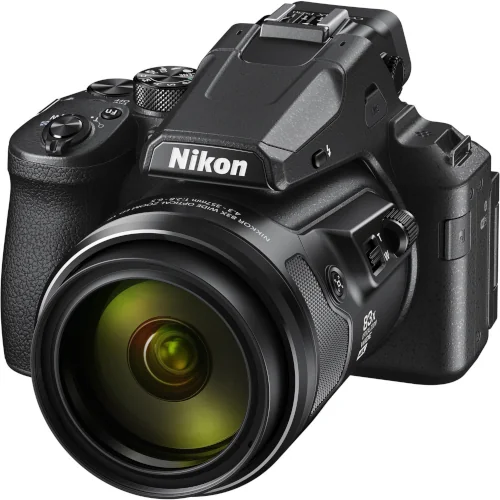
This camera is similar to the P900 with several improvements including RAW support, 4k video recording, and a hot shoe. The RAW support is important as they are the best image files to learn photo editing on and are what gets the best image quality out of a camera.
See current price and more information on:
Nikon P1000
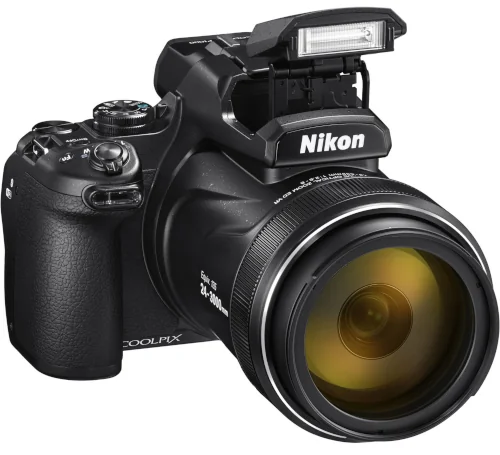
This is the best camera on the entire list.
The amount of zoom this camera is capable of is so unbelievable, it is borderline comical. That comes at a big tradeoff in terms of size and weight. Getting that reach with a interchangeable lens will be more expensive.
See current price and more information on:
Sony RX10 III
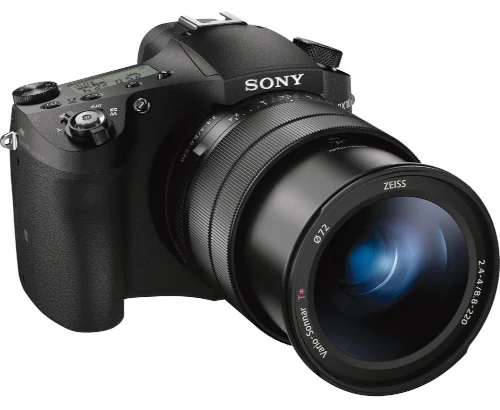
This camera has a larger 1.0-type sensor. The cost and weight are a major drawback to the RX10 Mark III. The only possible reason to buy this camera would be if you are more interested in video than photography.
Considering the price, a mirrorless Micro Four Thirds camera is likely a better choice. It allows for the body or lenses to be upgraded in the future. For when a telephoto lens isn’t needed, a smaller lens can be used, which will make the MFT camera smaller and lighter.
See current price and more information on:
Cameras Under $1500
| Camera | Zoom | Year | Weight | Megapixels | Battery | Battery Charger |
|---|---|---|---|---|---|---|
| Sony RX10 IV | 24-600mm | 2017 | 1095g | 20 MP | NP-FW50 | BC-WV1 |
Sony RX10 IV
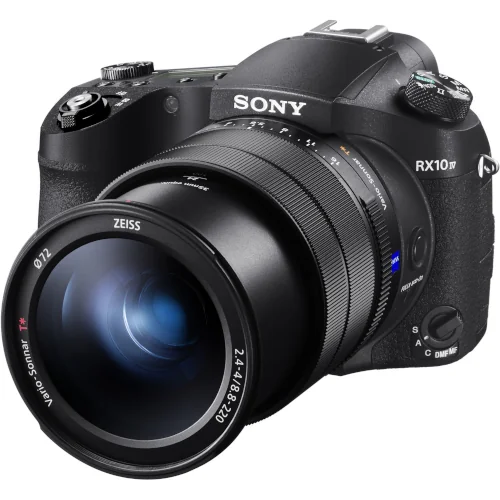
1.0-type sensor
See current price and more information on: